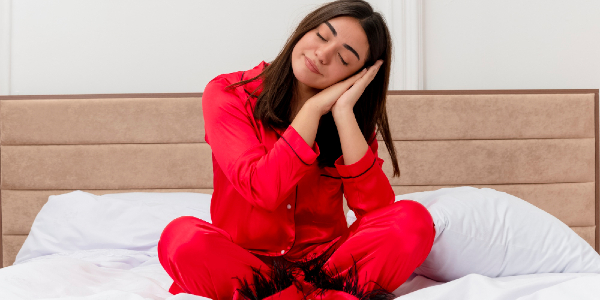Tips to manage insomnia and sleep better

Written by
Shebna N. Osanmoh
Reviewed by
Dr. Ellen A. Machikawa- Keep a consistent sleep/wake schedule and establish a relaxing wind‑down routine.
- Optimize your sleep environment; limit evening screens, caffeine, and alcohol; exercise earlier in the day.
- Consider CBT‑I for persistent insomnia and talk to a clinician if symptoms don’t improve.

Insomnia is a sleep disorder where people have problems falling asleep or staying asleep. This horrible condition may be experienced by millions of people, with a far-reaching negative impact on both mental and physical health. Many people need intensive treatment; most of them, however, could stand to improve their sleep hygiene. Here are some tips that may help you prevent insomnia or secure good sleep.
1. Wake Up and Sleep At The Same Every Day
Stick to a schedule. Your internal clock and the day-night cycle of sleepiness are resynchronized when you keep the same bedtime routine each night. So the regular time at which you turn in and rise–including on weekend mornings–is just that: regular. By its consistency your body will learn to know this tempo, so be ready for sleep already or else begin five a day up plus ten nights straight (AFIYI). Following those rules should help you more-or-less stave off insomnia gradually over time.
2. Establish a Bedtime Routine
A soothing sleep onset routine may help signal your brain that it is time to go to sleep. These include reading a book, meditation, and warm baths. Mindfulness and relaxation techniques, such as these, help to decrease the levels of cortisol, sometimes known as the stress hormone, which will, in turn, help you sleep more soundly.
3. Optimize Your Sleep Environment
According to research, it is easier to sleep in a dark, quiet, cool room. Make your room temperature around 60-67°F (15-19°C), and hang blackout curtains to your advantage. Use white noise machines or earplugs since light sleepers may get disturbed easily.
4. Sleep In a Comfortable Bed
Invest in a good mattress, pillows and bed that suit your preference for comfort. It is important that the setting be comfortable and supportive enough to sleep in. Many times, discomfort from poor bedding contributes to restlessness, disturbance in sleep, and morning pains that may have contributed to insomnia.
5. Avoid Screen Time
The blue light of the screen suppresses the secretion of melatonin, a sleep hormone. Try to avoid electronic devices-one hour before sleep-such as phones, tablets, or computers. You may substitute this very well with reading or journaling, which are non-screen activities that could help your brain rest.
6. Watch Your Diet and Lifestyle
(i) Limit Caffeine and Alcohol Intake
Intake of caffeine and alcohol disrupts sleep. A stimulating agent, caffeine stays in the body for hours and wreaks havoc on sleep. Avoid caffeine particularly after lunch, so that its interference with your sleep can be minimized. Alcohol might make you feel drained at first, but it disrupts sleep cycles-which is fragmented, lower quality sleep.
(ii) Develop Mindful Eating Habits
Avoid heavy, large meals before retiring; these interfere with sleep because your body is busy digesting the food. Try to finish eating at least 2-3 hours before bedtime. If you feel a bit hungry, a light snack high in complex carbohydrates or protein-banana or a fist full of almonds promotes sleep without causing indigestion.
(iii) Do Regular Exercise
Regular exercises can enhance sleeping quality and reduce latency before falling asleep. The American Heart Association recommends at least 150 minutes of moderate exercise per week. However, excessive late evening exercise may stimulate the nervous system, making it difficult to wind down.
7. Manage Stress and Anxiety
Chronic stress and anxiety are contributing factors to insomnia. The induction of relaxation practices, such as deep breathing, progressive muscle relaxation, or gentle yoga, in preparation for bed will help release tension and turn the mind toward rest. Meditation apps or guided breathing exercises can be effective at soothing the mind.
8. Consider Cognitive Behavioral Therapy (CBT)
Cognitive Behavioral Therapy for Insomnia or CBT-I for short, is an extremely effective non-medical intervention against sleep problems, one that modifies the underlying causes of insomnia by helping people change negative thoughts and behaviors about sleep. Because of this, sleep experts generally recommend CBT-I, and it might be applied in an effort to improve both the duration and quality of sleep.
9. Seek Professional Help When Needed
If these techniques do not work for anyone and insomnia persists, one should not hesitate to consult with their physician for help. Chronic insomnia may stem from sleep apnea, restless leg syndrome, or other mental health problems. By uncovering the cause, the specialist will discuss possible treatment options that range from medication and therapy to further sleep studies.
Conclusion
Enjoy light meals after the sun goes down, turn off the lights, do meditation, and consider small temperature adjustments in each room. If the problem still persists, consult a clinician for help.
